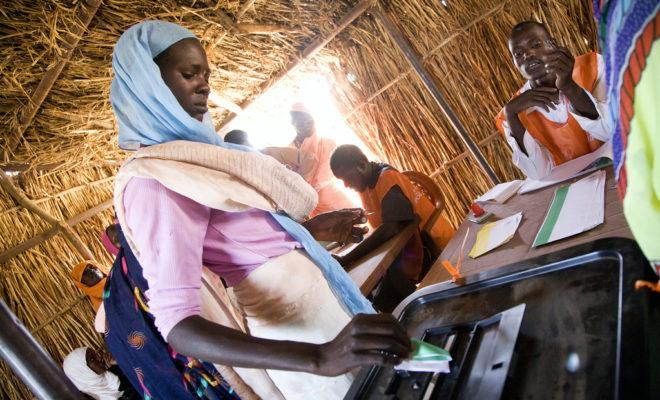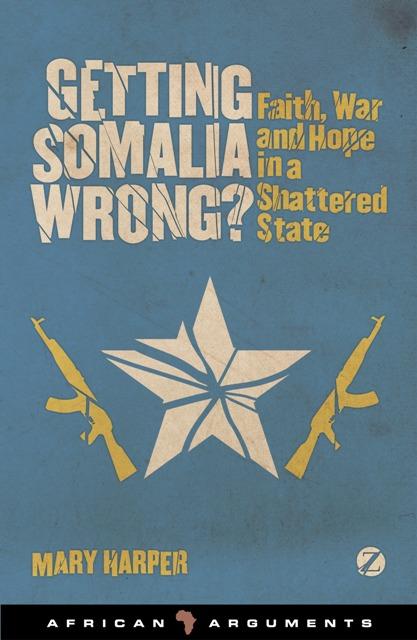Africa’s 2018 elections: The good, the bad and the possibly not-at-all

Elections are just one aspect of democratic governance, but their conduct gives an indication of how likely countries are to face uprising or unrest.

Elections are scheduled in several countries across Africa in 2018. Credit: UN Photo/Albert Gonzalez Farran.
When the Arab Spring broke out this time in 2011, bringing down the long-standing regimes in Tunisia and Egypt amongst others, many wondered whether it would be followed by an African Spring south of the Sahara.
None followed. This was in part, some concluded, because democracy had already been spreading across sub-Saharan Africa since the 1990s. African citizens were increasingly taking charge of their governments, and accountability was becoming more deeply embedded.
However, this was has never been true of all African countries. While some have seen promising progress, in many others autocracy and rent-seeking, or just the ‘Big Man’, remain entrenched and as strong as ever. The question looking ahead then is: what has made the difference and will the coming year see significant change?
There are many ways to examine the latter part of that question, but elections provide one clear litmus test. Popular votes are, of course, no panacea and are just one aspect of democratic governance. But they at least provide a reality check of how countries are faring and how great the risk that they are to face an uprising or unrest.
Elections ahead
In 2018, elections are due in Cameroon, the Democratic Republic of Congo (DRC), Egypt, Madagascar, Mali, Sierra Leone, South Sudan and Zimbabwe. This set of countries fills the spectrum from good to bad (or no) government.
A poor country still recovering from the Ebola epidemic and recent mudslides, Sierra Leone is facing difficult circumstances. But it does have an increasingly strong democratic culture, which is likely to be reflected in elections that, even if not technically perfect, should reflect the will of the people.
President Ernest Bai Koroma toyed with the idea of revising the Constitution to allow himself a third term. But he dropped the idea, so the country will get a new president after the 7 March vote. At the moment, it is too close to call whether the ruling APC’s Samura Kamara or an opposition candidate will emerge victorious.
In Madagascar and Mali, the outcome of elections, both scheduled for late in the year, are similarly uncertain. In Madagascar, long-standing rivalries re-surface with every election, and while President Hery Rajaonarimampianina will have some advantages of incumbency, the opposition has a solid chance of winning. In Mali, President Ibrahim Boubacar Keita’s time in office has been turbulent, but he may well be returned given the weakness of the opposition. But there will at least be a real choice.
This is much less true of Egypt. After not one but two revolutions since 2011 and a continuing terrorist threat, stability is a priority. But under President Abdel Fattah al-Sisi, this has come at a high price. Under his watch, political space has been closed drastically, thousands accused of supporting the Muslim Brotherhood have been incarcerated, and any serious potential rivals have been neutered. That means Sisi’s re-election in March is effectively a foregone conclusion. However, by stifling freedom and participation in the short-term, popular frustrations may simply be stored up for the future. Stability is far from assured.
The most interesting election this year is likely to be in Zimbabwe. The critical question here will not be who wins but how they win. Many have argued, including in African Arguments, that President Mugabe’s removal was primarily orchestrated to preserve the ZANU-PF old guard’s grip on power. But the popular jubilation at Mugabe’s departure and high expectations that things will change have put pressure on President Emmerson Mnangagwa to respond. He has already begun to do so, promising economic reform and inviting external observers for the elections.
In the vote, the heavily-divided opposition will find it difficult to challenge ZANU-PF, even on a level playing field. But for many Zimbabweans, it is the credibility of the elections that will be key. Much of this will rest on how neutral the Electoral Commission and judiciary prove themselves to be and how the security services behave. If the vote is not considered credible, Zimbabweans will prove less patient than they were under the Old Man.
Cameroon will be another test case. After years of relative economic success and political stasis, the country is coming under stress. The government’s apparent determination to quash dissent, not only in the Anglophone south-west but in the Francophone east, bodes ill for President Paul Biya’s chances of survival, whether he wins the October elections or not. In fact, an obviously manipulated electoral victory is more likely to unleash popular anger that will prove hard to contain.
The ongoing conflict in South Sudan makes it hard to see how elections can be held at all. Even if they are, it is difficult to imagine how they will produce an outcome that would have any impact on the balance between the warring factions that currently contest the country.
The most critical elections for the stability of the region will be those in the DRC. Originally scheduled for 2016, President Joseph Kabila had them postponed to December 2017, and then to December 2018. If they still do not take place, the risk of descent into chaos will get continue to rise.
Holding elections in the DRC is never easy. The country is vast, communications poor, and the political scene fragmented. But time is running out for Kabila to hold in any way credible elections, and the people’s patience is will not last beyond the end of the year. What would follow is anyone’s guess, but a continuation of Kabila’s government is becoming increasingly less likely. For Kabila therefore, the choice is to allow elections and step down, or risk losing everything.
Nervous autocrats
Elections are insufficient in and of themselves. As Tunisia and Egypt before the Arab Spring showed, electoral democracy does not necessarily mean growth and harmony. But providing a channel for people to express their feelings and air their views can make tackling these challenges easier in the long run.
Indeed, the risk of unrest in Africa is highest in countries where elections do not reflect the popular will and where social inequality, political oppression and public unease are all mounting. Without mechanisms such as open elections to allow expression and participation, the risk of a political explosion rises every year. In some African countries, nervous autocrats increasingly resemble rich survivors from a luxury yacht, alone and adrift on a tattered raft in stormy seas. An African Spring tide could easily sweep them all away.




